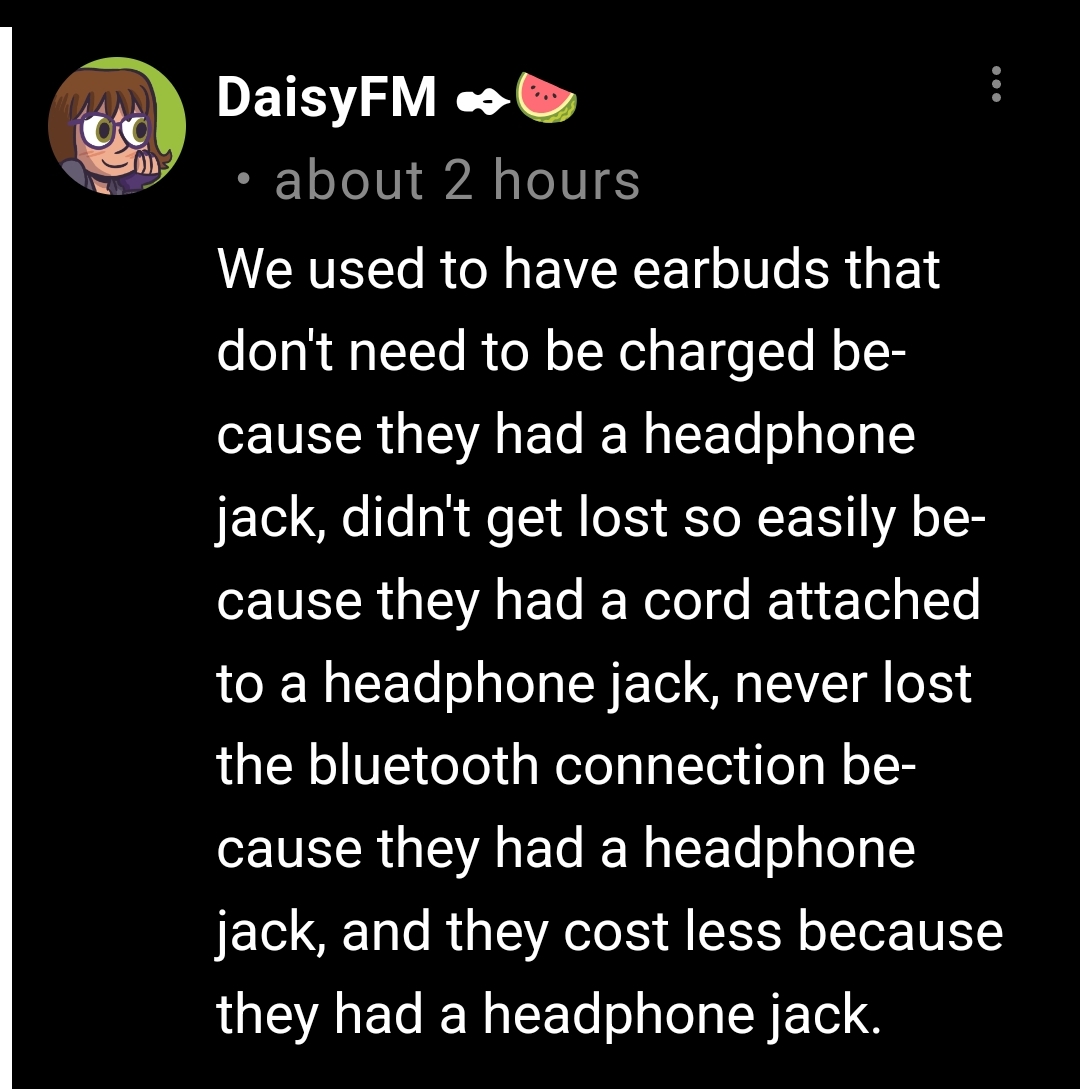this post was submitted on 08 Sep 2024
1642 points (95.3% liked)
Microblog Memes
5467 readers
5 users here now
A place to share screenshots of Microblog posts, whether from Mastodon, tumblr, ~~Twitter~~ X, KBin, Threads or elsewhere.
Created as an evolution of White People Twitter and other tweet-capture subreddits.
Rules:
- Please put at least one word relevant to the post in the post title.
- Be nice.
- No advertising, brand promotion or guerilla marketing.
- Posters are encouraged to link to the toot or tweet etc in the description of posts.
Related communities:
founded 1 year ago
MODERATORS
you are viewing a single comment's thread
view the rest of the comments
view the rest of the comments

There are USB-C headphones.
We used to be able to use headphones and charge our phones at the same time
And you still can.
What phone has two sockets? I'm interested, especially since my current one is about to die
there are a few, (I think the gaming-focused Asus ROG phones do), but I guess the other poster means shelling out for something like this:
All of them
2 in 1 USB C to 3.5mm Headphone and Charger Adapter, USB C to AUX Mic Jack with PD 60W Fast Charging for Stereo, Earphones, Compatible with Samsung Galaxy S24/S23/S23+/S22, Google Pixel 7/6 https://a.co/d/gqbWD53
Which cannot connect to a phone unless it's unlocked, as accepting every USB-C connection carries security risks. They also require negotiation, which can fail at any time, meaning you have to unlock, disconnect, reconnect.
I also have a nice, external (and still cheap) DAC on my computer. It has a headphone jack. This means I need to be able to disconnect the USB-C dongle from my headphones, unless I want to have two separate headphones for my phone and my PC. By extension this requires me to go searching for the dongle from time to time.
I love USB-C. But the headphone jack had what companies and people claim to want: simplicity.
Headphone jacks solved a single but extremly common problem very well. USB-C provides a workaround for it.
that's really interesting. USB-C was meant to be the one peripheral to unite them all: data, video, audio.
But no one considered that video/audio don't typically need to be security vetted, so shovelling them down the same wire protocol as data makes them less useful not more, and now we have to solve a hardware problem with software to let a simple media piece through.
Our desire for tech unity has regressed us
I don't think anybody wanted that unity for headphones.
say what you want, Bluetooth headphones are popular and practical, and their only caveat is battery life
What's next, PCI-e headphones?
And adaptors